Understanding Populism
Understand the resurgence of populism in America.
FEBRUARY 14 - FEBRUARY 16, 2020
WASHINGTON, DC
What happened to bipartisanship? As the U.S. heads into the 2020 election cycle, its defining political characteristic is a deep and growing ideological divide. Party affiliation is now a source of greater division between Americans than race, gender, religion, or level of education. Yet, at the same time, both major parties are less popular than any time in recent history.
This weekend seminar will examine the sources of hyperpartisanship as well as the consequences of party polarization for American political life. Students will consider such questions as: Is there an ideal level of party difference? How does partisanship become tribalism or hyperpartisanship, and can this be prevented? Is it possible to regulate partisan activity? And is a return to bipartisanship possible?
Image courtesy of Kirstie_J at pixabay.com
Daniel DiSalvo on party reform in America
This seminar will take place in Washington, DC. Travel, housing, meals, and course materials are provided by the Hertog Foundation.
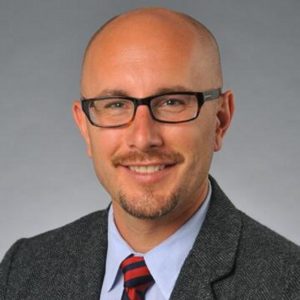
Daniel DiSalvo is a Senior Fellow at the Manhattan Institute’s Center for State and Local Leadership and an Assistant Professor of Political Science at The City College of New York-CUNY. His scholarship focuses on American political parties, elections, labor unions, state government, and public policy.

Daniel DiSalvo is a Senior Fellow at the Manhattan Institute’s Center for State and Local Leadership and an Assistant Professor of Political Science at The City College of New York-CUNY.
His scholarship focuses on American political parties, elections, labor unions, state government, and public policy. He is the author of Government Against Itself: Public Union Power and Its Consequences (Oxford University Press, 2015) and Engines of Change: Party Factions in American Politics, 1868-2010 (Oxford University Press, 2012).
DiSalvo writes frequently for scholarly and popular publications, including National Affairs, City Journal, American Interest, Commentary, The Weekly Standard, Los Angeles Times, New York Daily News, and New York Post. He is coeditor of The Forum: A Journal of Applied Research in Contemporary Politics.
DiSalvo holds a Ph.D. in politics from the University of Virginia.
READINGS:
DISCUSSION QUESTIONS:
Michael Barone is a resident fellow at the American Enterprise Institute and senior political analyst at the Washington Examiner. He studies politics, American government, and campaigns and elections. The principal coauthor of the annual Almanac of American Politics (National Journal Group), he has written many books on American politics and history. His most recent book, How America’s Political Parties Change (And How They Don’t), was published in 2019.
READINGS:
DISCUSSION QUESTIONS:
READINGS:
DISCUSSION QUESTIONS:
READINGS:
DISCUSSION QUESTIONS:
Yuval Levin is a resident scholar at the American Enterprise Institute and editor of National Affairs. He is also a senior editor of The New Atlantis, and a contributing editor of National Review and previously The Weekly Standard. Prior to joining AEI, he served as Vice President and Hertog Fellow at the Ethics and Public Policy Center. He has been a member of the White House domestic policy staff (under President George W. Bush), Executive Director of the President’s Council on Bioethics, and a congressional staffer. He is the author of The Fractured Republic (2016) and most recently, A Time To Build (2020).
READINGS:
DISCUSSION QUESTIONS:
Emily Ekins is a research fellow and director of polling at the Cato Institute. Her research focuses on public opinion, American politics, political psychology, and social movements. Before joining Cato, she spent four years as the director of polling for Reason Foundation where she conducted national public opinion polls and published specialized research studies. In 2014 Emily authored an in-depth study of young Americans, “Millennials: The Politically Unclaimed Generation.” She has discussed her research on C-SPAN, CNBC, NPR, Fox News, and Fox Business, and her research has appeared in The New York Times, The Washington Post, Politico, The Wall Street Journal, and The Los Angeles Times.

Matthew Continetti
Matthew Continetti is resident fellow at the American Enterprise Institute, Prior to joining AEI, he was Editor in Chief of the Washington Free Beacon. His articles and reviews have appeared in The New York Times, The Wall Street Journal, and The Washington Post.
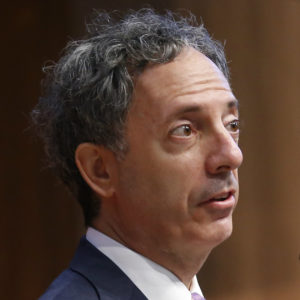
Peter Berkowitz
Peter Berkowitz is the Tad and Dianne Taube Senior Fellow at the Hoover Institution, Stanford University. He studies and writes about, among other things, constitutional government, conservatism and progressivism in America, liberal education, national security and law, and Middle East politics.
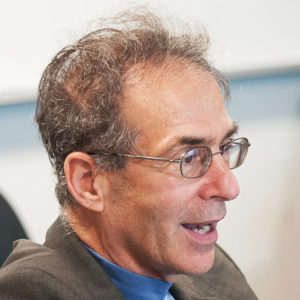
James W. Ceaser
James W. Ceaser is Harry F. Byrd Professor of Politics at the University of Virginia, where he has taught since 1976, and a senior fellow at the Hoover Institution. He has written several books on American politics and political thought, including Presidential Selection and Liberal Democracy and Political Science.

Diana Schaub
Diana J. Schaub is Professor of Political Science at Loyola University Maryland and a member of the Hoover Institution’s task force on The Virtues of a Free Society. From 2004 to 2009 she was a member of the President’s Council on Bioethics.
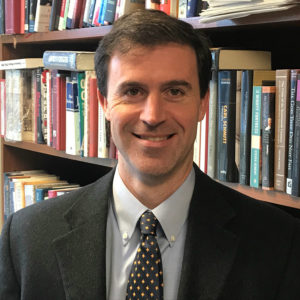
Richard M. Reinsch II
Richard M. Reinsch II is the founding editor of Liberty Fund’s online journal Law and Liberty and the host of LibertyLawTalk. He writes frequently for such publications as National Affairs, Modern Age, National Review Online, The Weekly Standard, and The University Bookman, among other publications.

Adam J. White
Adam J. White is a Resident Scholar at the American Enterprise Institute, and an Assistant Professor at George Mason University’s Antonin Scalia Law School, where he also directs the Gray Center for the Study of the Administrative State at George Mason University’s Antonin Scalia Law School.
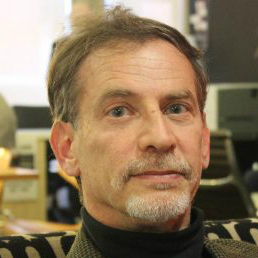
Darren Staloff
Darren Staloff is Professor of History at the City College of New York and the Graduate Center of the City University of New York. Professor Staloff has published numerous papers and reviews on the subject of early American history.